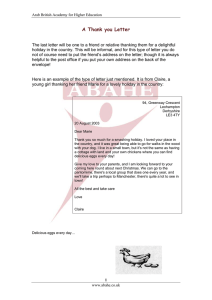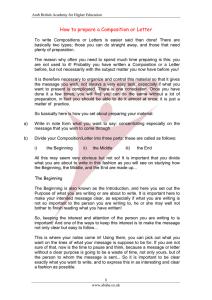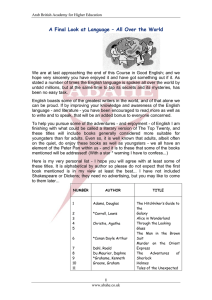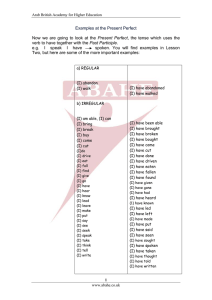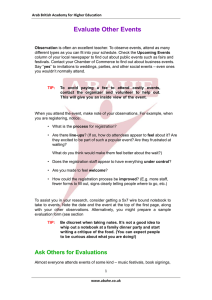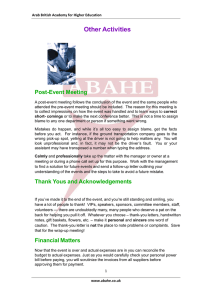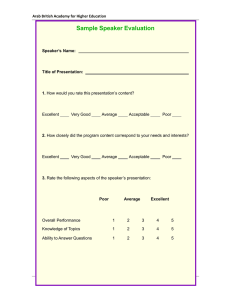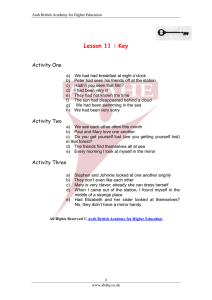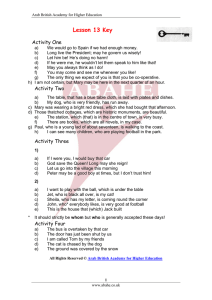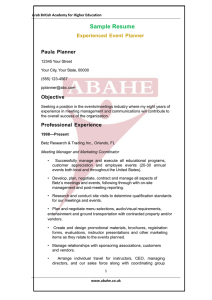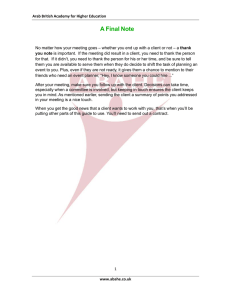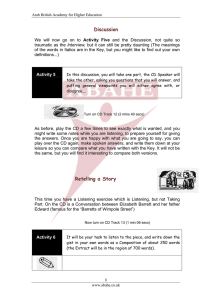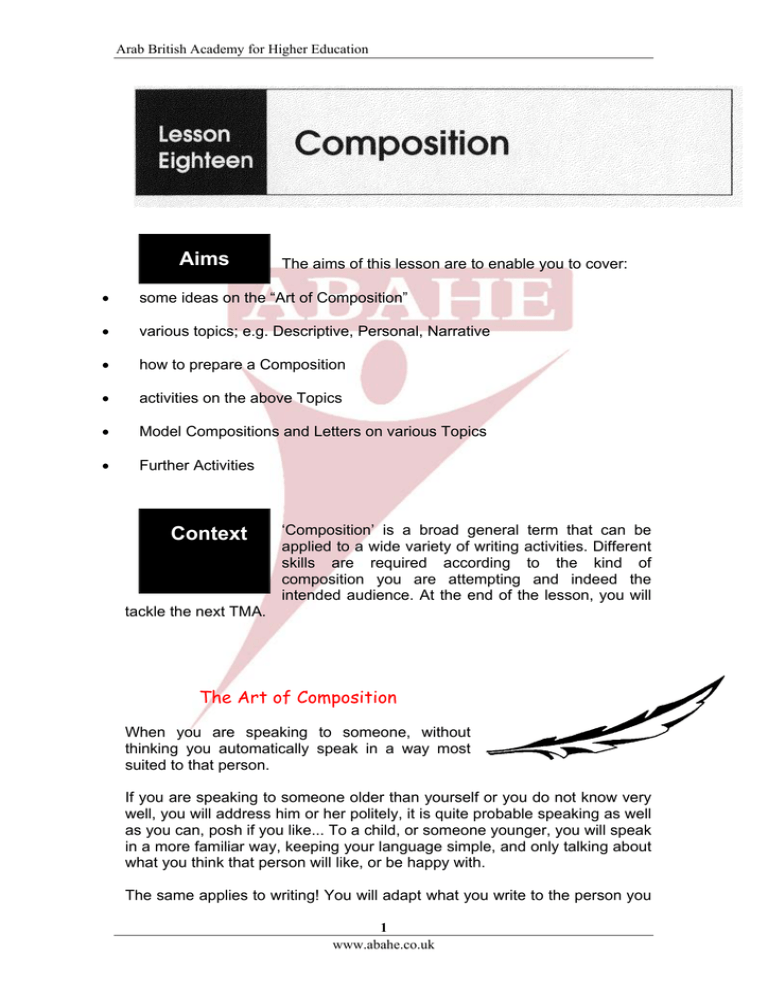
Arab British Academy for Higher Education
Aims
The aims of this lesson are to enable you to cover:
some ideas on the “Art of Composition”
various topics; e.g. Descriptive, Personal, Narrative
how to prepare a Composition
activities on the above Topics
Model Compositions and Letters on various Topics
Further Activities
Context
‘Composition’ is a broad general term that can be
applied to a wide variety of writing activities. Different
skills are required according to the kind of
composition you are attempting and indeed the
intended audience. At the end of the lesson, you will
tackle the next TMA.
The Art of Composition
When you are speaking to someone, without
thinking you automatically speak in a way most
suited to that person.
If you are speaking to someone older than yourself or you do not know very
well, you will address him or her politely, it is quite probable speaking as well
as you can, posh if you like... To a child, or someone younger, you will speak
in a more familiar way, keeping your language simple, and only talking about
what you think that person will like, or be happy with.
The same applies to writing! You will adapt what you write to the person you
1
www.abahe.co.uk
Arab British Academy for Higher Education
are writing for, and only present what you think they will understand or want.
A basic piece of English such as a message will only have the important
information you wish to give. A letter will be rather longer, and give news
about what has happened to you, good wishes for the person you are writing
to, and possibly some more general information. However, usually a letter
will be written in a conversational way, as you are almost certainly writing it
quickly, and not wanting to recopy it...
All these factors will affect directly the style of your English; you will have
been given some idea of the different kinds of English there are from the
Course so far.
If you are hoping after this Course, to enter the GCSE in
English or some other similar Examination, an excellent book
that gives you practice and guidance in every aspect of
written English is the following:
GCSE English (A Complete Course)
by Susan Davies
(Heineman 1997 ISBN 0-435-10194-3)
a letter will be written in a conversational way...
The following hints about essays, composition, and letter writing, will be
based partly on what Susan Davies sets down in her admirable textbook,
details of which have just been given. First let us look at the different types
of English you might be expected to write.
1) Personal Writing
a)
Your own situation, home - background
b)
Description: a place, object, building, person you are interested in
c)
Informative writing; explaining something to one or many
d)
Persuasive writing: setting down a case you believe in
2) Letters
a)
a letter to a hotel asking to book a room, and for information of prices,
facilities
b)
A letter to a hotel complaining about the recent holiday you have just had
c)
A request for an application form for a job, and a job description
2
www.abahe.co.uk
Arab British Academy for Higher Education
d)
A business letter in answer to a client on a current contract
e)
A letter to a friend/relative thanking them for a delightful holiday by the
seaside/in the country
by the seaside…
All Rights Reserved © Arab British Academy for Higher Education
3
www.abahe.co.uk

